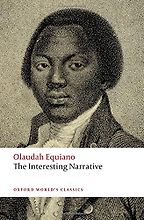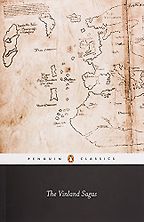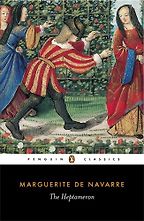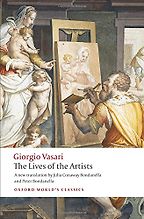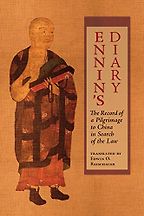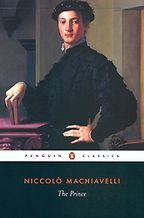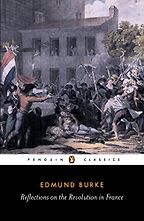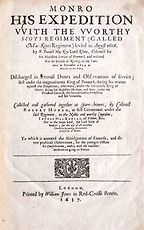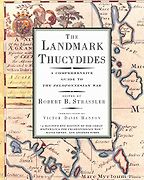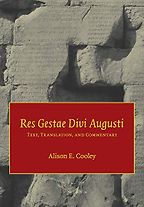Primary Sources
Last updated: June 05, 2023
Study history for any length of time, and you'll be familiar with the importance of 'primary sources', accounts written at the time about the events taking place or the theme you're writing about. Even though every source will have its own bias or perspective and some may be pure fiction, no historian worth their salt is likely to write a book without referring to and relying on them.
What's less often mentioned is how incredibly empowering primary sources can be. You hear the voice of someone writing centuries, maybe even millennia, ago, telling you their story (or interpretation of events) directly. Read primary sources and, on one level, you will know everything there is to know about a subject–because the writing of all subsequent historians will be works of expansion and explanation, using that same material.
Of course, after reading these primary sources, you'll probably want to know a lot more about the person, their time, how accurate their accounts are. But that's the role of a good book: to make you want to read and find out more.
Below, we've listed some of the primary sources that have been recommended on Five Books.
The Interesting Narrative
by Olaudah Equiano
This is a fascinating book, a memoir written in the 18th century by Olaudah Equiano. Born in Africa, he was kidnapped and sold into slavery as a child, eventually managed to buy and retain his freedom, and ultimately settled in the UK where he was very active in the abolitionist movement. Reading what it was like being a slave in the 18th century, written by someone who was one, is a transformative experience, and it's no surprise this book has been recommended many times on Five Books.
“‘Vin’ is their word for wine, related to the grapes they find there. It’s hard to know exactly what area they’re talking about. Coming down from Arctic Canada, we can match up Baffin Island to the Helluland or ‘Stone slab land’ they talk about in The Vinland Sagas—it’s very rocky. Further south, you get the coast of Labrador, which they called Markland or ‘Forest land’ because there are lots of trees. And then they talk about this area called Vinland. It’s not America as we think of it, it’s more Newfoundland and then heading down the coast to Nova Scotia: the St Lawrence River region.” Read more...
Eleanor Rosamund Barraclough, Historian
“Marguerite was the sister of François I, King of France. She was originally married to Charles IV of Alençon, who died in 1525. After she was widowed, Marguerite was strongly encouraged by her brother to marry a younger man for political purposes. This second marriage was not happy…Even though her husband was violent, divorce was not an option for a French princess in those days. One of the ways Marguerite fought back was to write this book. She was inspired by a new French translation of The Decameron, written by an Italian, Giovanni Boccaccio, in the 14th century. The Decameron used the literary device of 10 people telling 10 stories each, so it contained a hundred short stories, almost all of them about love…After reading it, Marguerite also decided to write a book of 72 short stories, but with one big difference – the stories in her book were supposed to have actually happened. She only included anecdotes that she knew to be true, or that came from a source which she trusted…The first two stories are very harsh. Marguerite is clearly getting her revenge on her husband, and men in general. The rest of the anecdotes are much funnier and cleverer. This is a good choice if you want to learn about the period, because these are the voices of real people. Think of it as being a bit like Desperate Renaissance Housewives.” Read more...
The best books on Strong Women in Bad Marriages
Nancy Goldstone, Historian
“This is Plato’s version of Socrates’ court speech. It’s very short, yet it gives us all sorts of extraordinary things. On first reading it is a brilliant piece of forensic oratory…This is so much more sophisticated as writing than most philosophy written today. It’s amazing that 2,500 years ago there were writers around who were better at writing about ideas than just about anyone alive today, even though there are many more philosophers in our era.” Read more...
M M McCabe, Philosopher
“With Vasari, we begin thinking that artistic biography might matter. As much as we may want to resist the notion that biography is central to understanding art, it seems as though it is just inevitable – the life of the artist is an inevitable element in considering the art itself, as Vasari realised early on.” Read more...
Blake Gopnik, Art Historians, Critics & Curator
Diary: Record of a Pilgrimage to China in Search of the Law
Ennin (trans. E O Reischauer)
“Ennin’s diary is one of our best sources for learning what life was like in China during the time of the Silk Road. Ennin was a monk who traveled from Japan to China in the 800s. He began traveling as part of an embassy that the Japanese sent to learn about Chinese technology. He got caught in an 845 Buddhist suppression, when the Emperor ordered all monks to grow their hair and stop wearing robes. It’s a real adventure story about his experiences, trying to hide from the authorities and always trying to get home. It’s a great book.” Read more...
The best books on The Silk Road
Valerie Hansen, Historian
“Euclides da Cunha was a military engineer turned journalist who, in the 1890s, covered a rebellion of pro-monarchist settlers in Canudos led by a religious fanatic called Antonio Conselheiro. The army was sent in to crush the rebellion five times and 15,000 people were killed. This book is about the campaign, but it’s also about Brazilian society, about Brazilian-style religious fanaticism.” Read more...
Larry Rohter, Foreign Correspondent
“The Prince is an occasion piece. It was written in 1513 after the Medici had been returned to power. Machiavelli was out of a job—he’d been tortured and fired—and couldn’t afford to live in Florence. And his obsession with politics and international affairs was such that he couldn’t let go. So he started a correspondence with his friend Francesco Vettori and, from that correspondence, arose The Prince. It was a book about how to deal with the crisis of Italy after the French invasions. Machiavelli’s response, in The Prince, was that the only way Italy was going to maintain its independence, and freedom, and drive out the barbarians—which is a term he always used for northern Europeans—was to beat them at their own game, to be more violent, more vicious, more brutal, and more faithless” Read more...
The Best Italian Renaissance Books
Kenneth Bartlett, Historian
“Prior to The Reflections, Burke was thought of as a friend of liberty. He had been very sympathetic to the American cause and Wollstonecraft defended him, and others, in a review. Also, this would not have been known to her or to anyone else, but Burke wrote an unpublished critique of the laws pertaining to Ireland. He was seen as one of them. When the Reflections came out and he becomes the champion of private property, they think of him as a turncoat.” Read more...
The Best Mary Wollstonecraft Books
Sylvana Tomaselli, Historian
“This is a classic text from the Thirty Years War . . . He’s a Scotsman, but he serves the Danes and then the Swedes and he then returns to fight in the British civil wars.” Read more...
The best books on The Thirty Years War
Peter Wilson, Historian
“Thucydides is the single best treatment of international relations, foreign policy and military affairs that exists. It is the best description of what life in a multipolar world is like, what politics and war are like for the units involved, of the basic realities of international relations. It has no single line.” Read more...
The best books on US Foreign Policy
Gideon Rose, International Relation
Res Gestae Divi Augusti: Text, Translation, and Commentary
by Alison Cooley (editor) & Augustus
"The long list of ‘the achievements of the deified Augustus, by which he made the world subject to the rule of the Roman People, and of the expenses he incurred for the republic and the Roman People’, was composed to be inscribed on bronze and set up on two bronze pillars in front of Augustus’ monumental tomb on the Campus Martius in Rome. We know it from the copy—both in the original Latin and in a Greek translation—that was inscribed on the walls of a temple at Ancyra in the province of Galatia (modern Ankara in Turkey) and discovered and transcribed in the sixteenth century. Obviously, Augustus’ own account is of fundamental importance for understanding his life and times, and Alison Cooley has done a brilliant job both of translation and of historical commentary. A lot of the detail will be more than the general reader needs, but there’s an immense amount of information here"—Peter Wiseman, recommending the best books on Augustus.
An Ecclesiastical History of the English People
by the Venerable Bede
Bede is writing about 130 years after the English had first experienced Christianity, and so one reason to choose Bede is that if you’re in any sort of English-speaking tradition, his history is the first really, really big piece of history in that tradition. If you’re in the United States or in Australia, you’re still in a sense the heir to this man’s book.
